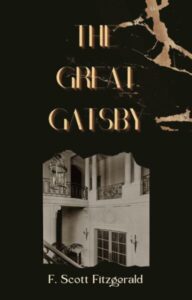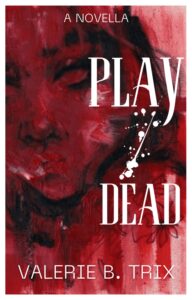When I awoke it was dark all around me. I started up, bewildered and freezing. I seized my parcel and commenced to walk. I went faster and faster in order to get warm, slapped my arms, chafed my legs–which by now I could hardly feel under me–and thus reached the watch-house of the fire brigade. It was nine o’clock; I had been asleep for several hours.
Whatever shall I do with myself? I must go to some place. I stand there and stare up at the watch-house, and query if it would not be possible to succeed in getting into one of the passages if I were to watch for a moment when the watchman’s back was turned. I ascend the steps, and prepare to open a conversation with the man. He lifts his ax in salute, and waits for what I may have to say. The uplifted ax, with its edge turned against me, darts like a cold slash through my nerves. I stand dumb with terror before this armed man, and draw involuntarily back. I say nothing, only glide farther and farther away from him. To save appearances I draw my hand over my forehead, as if I had forgotten something or other, and slink away. When I reached the pavement I felt as much saved as if I had just escaped a great peril, and I hurried away.
Cold and famished, more and more miserable in spirit, I flew up Carl Johann. I began to swear out aloud, troubling myself not a whit as to whether any one heard me or not. Arrived at Parliament House, just near the first trees, I suddenly, by some association of ideas, bethought myself of a young artist I knew, a stripling I had once saved from an assault in the Tivoli, and upon whom I had called later on. I snap my fingers gleefully, and wend my way to Tordenskjiolds Street, find the door, on which is fastened a card with C. Zacharias Bartel on it, and knock.
He came out himself, and smelt so fearfully of ale and tobacco that it was horrible.
“Good-evening!” I say.
“Good-evening! is that you? Now, why the deuce do you come so late? It doesn’t look at all its best by lamplight. I have added a hayrick to it since, and have made a few other alterations. You must see it by daylight; there is no use our trying to see it now!”
“Let me have a look at it now, all the same,” said I; though, for that matter, I did not in the least remember what picture he was talking about.
“Absolutely impossible,” he replied; “the whole thing will look yellow; and, besides, there’s another thing”–and he came towards me, whispering: “I have a little girl inside this evening, so it’s clearly impracticable.”
“Oh, in that case, of course there’s no question about it.”
I drew back, said good-night, and went away.
So there was no way out of it but to seek some place out in the woods. If only the fields were not so damp. I patted my blanket, and felt more and more at home at the thought of sleeping out. I had worried myself so long trying to find a shelter in town that I was wearied and bored with the whole affair. It would be a positive pleasure to get to rest, to resign myself; so I loaf down the street without thought in my head. At a place in Haegdehaugen I halted outside a provision shop where some food was displayed in the window. A cat lay there and slept beside a round French roll. There was a basin of lard and several basins of meal in the background. I stood a while and gazed at these eatables; but as I had no money wherewith to buy, I turned quickly away and continued my tramp. I went very slowly, passed by Majorstuen, went on, always on–it seemed to me for hours,–and came at length at Bogstad’s wood.
I turned off the road here, and sat down to rest. Then I began to look about for a place to suit me, to gather together heather and juniper leaves, and make up a bed on a little declivity where it was a bit dry. I opened the parcel and took out the blanket; I was tired and exhausted with the long walk, and lay down at once. I turned and twisted many times before I could get settled. My ear pained me a little–it was slightly swollen from the whip-lash–and I could not lie on it. I pulled off my shoes and put them under my head, with the paper from Semb on top.
And the great spirit of darkness spread a shroud over me … everything was silent–everything. But up in the heights soughed the everlasting song, the voice of the air, the distant, toneless humming which is never silent. I listened so long to this ceaseless faint murmur that it began to bewilder me; it was surely a symphony from the rolling spheres above. Stars that intone a song….
“I am damned if it is, though,” I exclaimed; and I laughed aloud to collect my wits. “They’re night-owls hooting in Canaan!”
I rose again, pulled on my shoes, and wandered about in the gloom, only to lay down once more. I fought and wrestled with anger and fear until nearly dawn, then fell asleep at last.
It was broad daylight when I opened my eyes, and I had a feeling that it was going on towards noon.
I pulled on my shoes, packed up the blanket again, and set out for town. There was no sun to be seen today either; I shivered like a dog, my feet were benumbed, and water commenced to run from my eyes, as if they could not bear the daylight.
It was three o’clock. Hunger began to assail me downright in earnest. I was faint, and now and again I had to retch furtively. I swung round by the Dampkökken, 2 read the bill of fare, and shrugged my shoulders in a way to attract attention, as if corned beef or salt port was not meet food for me. After that I went towards the railway station.
A singular sense of confusion suddenly darted through my head. I stumbled on, determined not to heed it; but I grew worse and worse, and was forced at last to sit down on a step. My whole being underwent a change, as if something had slid aside in my inner self, or as if a curtain or tissue of my brain was rent in two.
I was not unconscious; I felt that my ear was gathering a little, and, as an acquaintance passed by, I recognized him at once and got up and bowed.
What sore of fresh, painful perception was this that was being added to the rest? Was it a consequence of sleeping in the sodden fields, or did it arise from my not having had any breakfast yet? Looking the whole thing squarely in the face, there was no meaning in living on in this manner, by Christ’s holy pains, there wasn’t. I failed to see either how I had made myself deserving of this special persecution; and it suddenly entered my head that I might just as well turn rogue at once and go to my “Uncle’s” with the blanket. I could pawn it for a shilling, and get three full meals, and so keep myself going until I thought of something else. ‘Tis true I would have to swindle Hans Pauli. I was already on my way to the pawn-shop, but stopped outside the door, shook my head irresolutely, then turned back. The farther away I got the more gladsome, ay, delighted I became, that I had conquered this strong temptation. The consciousness that I was yet pure and honourable rose to my head, filled me with a splendid sense of having principle, character, of being a shining white beacon in a muddy, human sea amidst floating wreck.
Pawn another man’s property for the sake of a meal, eat and drink one’s self to perdition, brand one’s soul with the first little scar, set the first black mark against one’s honour, call one’s self a blackguard to one’s own face, and needs must cast one’s eyes down before one’s self? Never! never! It could never have been my serious intention–it had really never seriously taken hold of me; in fact, I could not be answerable for every loose, fleeting, desultory thought, particularly with such a headache as I had, and nearly killed carrying a blanket, too, that belonged to another fellow.
There would surely be some way or another of getting help when the right time came! Now, there was the grocer in Groenlandsleret. Had I importuned him every hour in the day since I sent in my application? Had I rung the bell early and late, and been turned away? Why, I had not even applied personally to him or sought an answer! It did not follow, surely, that it must needs be an absolutely vain attempt.
Maybe I had luck with me this time. Luck often took such a devious course, and I started for Groenlandsleret.
The last spasm that had darted through my head had exhausted me a little, and I walked very slowly and thought over what I would say to him.
Perhaps he was a good soul; if the whim seized him he might pay me for my work a shilling in advance, even without my asking for it. People of that sort had sometimes the most capital ideas.
I stole into a doorway and blackened the knees of my trousers with spittle to try and make them look a little respectable, left the parcel behind me in a dark corner at the back of a chest, and entered the little shop.
A man is standing pasting together bags made of old newspaper.
“I would like to see Mr. Christie,” I said.
“That’s me!” replied the man.
“Indeed!” Well, my name was so-and-so. I had taken the liberty of sending him an application, I did not know if it had been of any use.
He repeated my name a couple of times and commenced to laugh.
“Well now, you shall see,” he said, taking my letter out of his breast- pocket, “if you will just be good enough to see how you deal with dates, sir. You dated your letter 1848,” and the man roared with laughter.
“Yes, that was rather a mistake,” I said, abashed–a distraction, a want of thought; I admitted it.
“You see I must have a man who, as a matter of fact, makes no mistakes in figures,” said he. “I regret it, your handwriting is clear, and I like your letter, too, but–”
I waited a while; this could not possibly be the man’s final say. He busied himself again with the bags.
“Yes, it was a pity,” I said; “really an awful pity, but of course it would not occur again; and, after all, surely this little error could not have rendered me quite unfit to keep books?”
“No, I didn’t say that,” he answered, “but in the meantime it had so much weight with me that I decided at once upon another man.”
“So the place is filled?”
“Yes.”
“A–h, well, then there’s nothing more to be said about it!”
“No! I’m sorry, but–”
“Good-evening!” said I.
Fury welled up in me, blazing with brutal strength. I fetched my parcel from the entry, set my teeth together, jostled against the peaceful folk on the footpath, and never once asked their pardon.
As one man stopped and set me to rights rather sharply for my behaviour, I turned round and screamed a single meaningless word in his ear, clenched my fist right under his nose, and stumbled on, hardened by a blind rage that I could not control.







